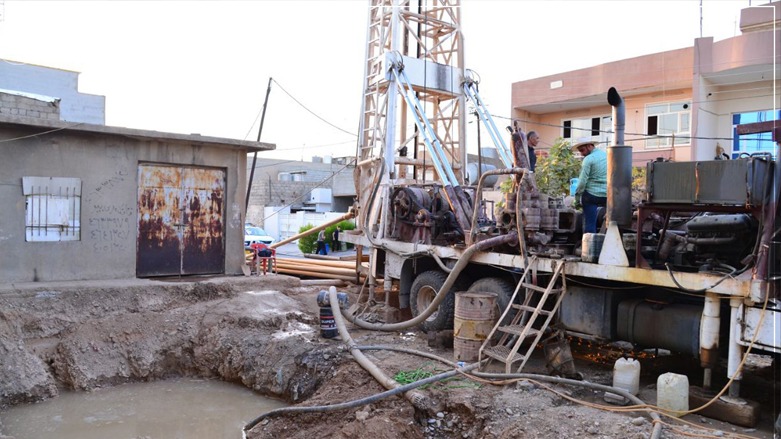Nearly 300 groundwater wells dried up in Erbil province in 2022: Water authority
According to the official, increased demand for water and electricity during the sweltering summer season is a major cause of water shortages.

ERBIL (Kurdistan 24) – At least 300 groundwater wells in the Kurdistan Region's Erbil province dried up this year.
Low precipitation continues to affect the environment and people who depend on groundwater, the head of the Kurdistan Region's water and sewage directorate, Ari Ahmed, told the Kurdistan Regional Government (KRG) Media and Information Department.
According to Ahmed, approximately 300 water wells have gone dry across the province in 2022.
A well is considered dried up when its water reaches such a low level that it can no longer be extracted.
According to the official, increased demand for water and electricity during the sweltering summer season is a major cause of water shortages.
Local officials are digging 138 new wells, 40 of which have been completed so far, to reduce water shortages and scarcity caused by droughts, deputy Erbil Governor Hemin Qadir told the KRG media department.
In addition to groundwater, the province relies on water from the Great Zab River, where there are three water treatment plants known as Ifraz.
The Kurdistan Region's authorities have dedicated $14 million to maintain the water distribution network ahead of the summer season.
Some parts of the city have recently experienced water shortages as temperatures dramatically increase.
